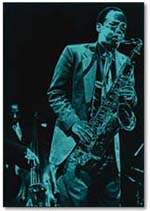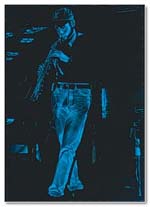Main Menu · Search ·Current Issue ·Contact ·Archives ·Centennial ·Letters to the Editor ·FAQs
| The Manly Ideal | Films: Down Off the Farm |
| Music: Jazz with Ivy League Manners | Chapter & Verse |
| Off the Shelf | Open Book: Friends of France |
| The Manly Ideal | Films: Down Off the Farm |
| Music: Jazz with Ivy League Manners | Chapter & Verse |
| Off the Shelf | Open Book: Friends of France |
 |
| Don Braden. Photograph by Kris Snibbe |
 |
| Jonny King. Photograph by Jane Reed |
 |
| Joshua Redman. Photograph by Jane Reed |